Driving Indigenous economic prosperity and resilience by advancing business and boosting employment opportunities
4 - 6 May 2022 | Hilton Cairns
OVERVIEW
Indigenous businesses provide significant economic, social and cultural contributions to Australia but their impact has largely gone unnoticed. They provide employment and deliver services to Indigenous communities in a culturally sensitive manner that is essential for ensuring trust and accessibility of service for Indigenous people that rely on them.
As it turns out, the previous year has presented more obstacles for Indigenous business than anyone could have predicted. Adapting and building resilience to these challenges will bring on new opportunities and value for the Indigenous community.
Akolade’s 8th National Indigenous Economic Development Forum will provide attendees with the opportunity to acquire knowledge on how to effectively advance the Indigenous economy, create sustainable pathways to employment, empower and drive Indigenous entrepreneurship and build successful partnerships to grow Indigenous businesses into successful enterprises.
ATTEND THIS SUMMIT AND LEARN HOW TO:
Build capability and capacity for Indigenous businesses to accelerate growth
Drive financial sustainability and wealth creation in businesses and communities
Effectively attract, upskill and retain Indigenous employees
Create job opportunities and sustainable employment pathways
Develop and grow cross-sector collaborations to build stronger businesses, communities and increase employment opportunities
HEAR FROM 30+ COMMUNITY AND GOVERNMENT LEADERS

150+
ATTENDEES

30+
SPEAKERS

2
DEDICATED STREAMS
WHAT OUR CLIENTS SAY
AGENDA
8:00 AM
Registration opens
8:30 AM
Welcome to Country
Hardie Fourmile, Gimuy Walubara Yidinji Elder
Jeanette Singleton, Yirrganydji Elder
8:50 AM
Opening remarks from the Chair
Phil Usher, Chief Executive Officer, First Nations Foundation
9:00 AM
Opening keynote
Showcasing the journey of Indigenous economic development in recent years
• Discussing the rapidly growing industries linked to Indigenous development
• Identifying key areas of improvement and developing a strategy for growth
• How Indigenous businesses can best utilise support and financial assistance
Eddie Fry, Chair, Indigenous Business Australia *Virtual presentation
9:30 AM
How to achieve employee satisfaction by creating positive workplace culture and practice
• Implementing ongoing professional development and training opportunities
• How can we create a conducive and attractive workplace?
• How to build and maintain the culture and mindset that makes transformation successful during the pandemic
Zak Kirkup, Co-Founder and Director, Kolbang
10:00 AM
Panel Discussion
Identifying the positive effects of using cultural knowledge and practices to deliver services and manufacture products
• Applying traditional knowledge to drive business sustainability
• How to provide services that are sensitive to culture and community
• Developing strategies to engage the local communities to help tackle the challenges of a small business
Gavin Singleton, Project Manager, Dawul Wuru Aboriginal Corporation
Cr Wayne Butcher, Mayor, Lockhart River Aboriginal Shire Council
Remy Crick, Business Development Manager, Indigenous Capital Limited
Kaye-Maree Dunn, Director, Making Everything Achievable
10:40 AM
Morning Refreshments
Stream A: Supporting Indigenous businesses and communities to thrive
Chair: Phil Usher, Chief Executive Officer, First Nations Foundation
Stream B: Creating employment opportunities and supporting Indigenous employees
Chair:Remy Crick, Business Development Manager, Indigenous Capital Limited
11:10 AM
Case study
How to use the sense of connection to drive prosperity amongst First Nations people
• Developing strategies to use cultural knowledge for the benefit of the environment
• Identifying the effects of connection and its relation to wellbeing and healing
• How to maintain the ongoing connection to Country
Gavin Singleton, Project Manager, Dawul Wuru Aboriginal Corporation
How to implement eCommerce as a tool for collaboration and to scale your business for greater impact
• Identifying the benefits of eCommerce and collaboration to scale your business
• Implementing strategies to build partnerships through eCommerce with First Nation businesses
• Developing strategies to utilise the full potential of the collaboration
Remy Crick, Business Development Manager, Indigenous Capital Limited
11:50 AM
Developing innovative ways to close the gap for home ownership for First Nations Peoples
• Analysing and implementing strategies to overcome the barriers of key home ownership
• Showcasing Head Start Homes solutions and how they help provide equal access to home ownership
• Identifying the benefits of pursuing a housing first strategy for beneficiaries and the wider community
Stephen Woodlands, Founder and Managing Director, Head Start Homes *Virtual presenter
Working with communities and recognising all the determinants of wellbeing
• Identifying the benefits of supporting employees’ wellbeing
• How to create a positive culture that facilitates employee retention
• Developing organisational leadership and management that creates a healthy work environment
Debra Cerasa, Chief Executive Officer, Jobs Australia
12:30 PM
Networking Luncheon
1:30 PM
Case study
Discussing key learnings of how to grow a business during a pandemic
• Developing strategies to build resilience and future-proof your business in the times of unforeseen disasters
• How to utilise the available resources during a pandemic and use Indigenous cultural knowledge to your advantage
• How to overcome the challenges brought on by the pandemic and still develop products that are sustainable and promote Indigenous culture
Greg Welsh, General Manager, Winya Furniture
Case study
Preparing and supporting Aboriginal and Torres Strait Islander young people into employment
• Identifying pathways for employment that lead to a brighter future for Indigenous job seekers
• Establishing partnerships to provide young Indigenous job seekers with employment opportunities
• Developing strategies to provide seamless transitions into the workforce
Gerry Georgatos, Founder, The Georgatos Foundation
2:10 PM
Case study
Identifying how an Indigenous circular economy can stimulate employment, drive business growth and champion industry change
• How to leverage opportunities that will advance community development
• Developing strategies to build partnerships that achieve and deliver efficiency
• Using traditional knowledge to inform and drive business growth, opportunities, and industry change
Divinia Eather, Marketing Manager, Eather Group
How to introduce and maintain appropriate cultural practices in an organisation
• Implementing practices that include the senior management as the key players
• Identifying the benefits of inclusion of cultural practices at the workplace
• Driving employee morale and retention through connection to cultural practice
Christopher Galloway, Chief Executive Officer, Muru Mittigar *Virtual presentation
2:50 PM
Afternoon Refreshments
3:20 PM
Building strategies to accelerate Indigenous governance to deliver economic outcomes
• Identifying how to give the power back to Indigenous individuals and communities to lead
• How to collaborate and achieve high levels of participation and engagement, which includes Indigenous peoples in decision-making processes
• Developing strategies to empower Indigenous communities by strengthening governance capacities
Debbie Barwick, Chairperson, NSW Indigenous Chamber of Commerce *Virtual presenter
4:00 PM
Case study
How to tackle political and policy challenges of driving Traditional Owner-led economic development
• How to ensure control and decision-making remains with Traditional Owners
• Identifying how to access support services for legal, strategic and financial advice
• Developing strategies to negotiate better deals for Traditional Owners
Cissy Gore-Birch, Chairperson, Balanggarra Aboriginal Corporation and Kimberley Cultural Connections *Virtual presenter
4:30 PM
Closing remarks from the Chair and end of day one
4:30 PM onwards – Interactive Session – The First Map Project
Winaya invites you to join them on their journey and contribute to the growth of the Indigenous language map with the artist Darren Charlwood.
The First Map Project is Winya Indigenous Furniture’s community initiative to build a resource around practiced and unpracticed Indigenous language groups. This is a project that encourages the contribution from Indigenous people across Australia to build the first language group map created by an Indigenous person from an Indigenous perspective.
This map will include all currently practiced Indigenous languages and languages that are no longer practiced. This will provide an indication of where language is flourishing and where it is fading so that actions can be taken to stop this. This is a community resource and a culmination of information about Indigenous language groups that is allowed to be viewed by greater Australia.
**Drinks will be served during the engagement.
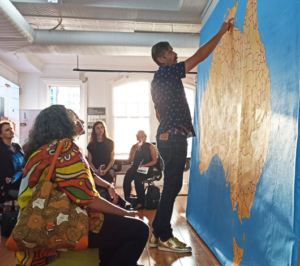
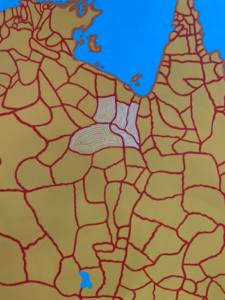
8:00 AM
Registration opens
8:50 AM
Opening remarks from the Chair
Phil Usher, Chief Executive Officer, First Nations Foundation
9:00 AM
Keynote
How to drive Indigenous economic prosperity through collaboration
• Identifying how to leverage partnerships to drive business growth
• How to maximise your business spends through shared expenses
• Implementing strategies to focus on Indigenous development priorities from the onset of the collaboration
Joe Morrison, Group Chief Executive Officer, Indigenous Land and Sea Corporation
9:30 AM
Implementing strategies to achieve socio-economic returns whilst promoting culture
• Identifying strategic partnership opportunities to deliver community prosperity and achieve socio-economic returns
• Implementing strategies to improve socio-economic opportunities for the benefit of a business and community
• Developing strategies to encourage youth and members from the community to contribute and participate in community development
Scott McCartney, Chief Executive Officer, Kinaway Chamber of Commerce
10:00 AM
Panel Discussion
Accelerating the growth of Indigenous women in leadership roles
• Discussing the benefits of having women in leadership roles to deliver community goals
• How to provide equal opportunities for women to thrive in their career
• Creating role models and aspirations for girls and women
Jenni Walke, Managing Director, Elephant in the Room Consulting
Kaye-Maree Dunn, Director, Making Everything Achievable
Tess Atie, Founder, Northern Territory Indigenous Tours
10:40 AM
Morning Refreshments
Stream A: Supporting Indigenous businesses and communities to thrive
Chair: Phil Usher, Chief Executive Officer, First Nations Foundation
Stream B: Creating employment opportunities and supporting Indigenous employees
Chair: Remy Crick, Business Development Manager, Indigenous Capital Limited
11:10 AM
Supporting the development and growth of Indigenous businesses across Australia
• How can organisations across Australia support the growth of Indigenous entrepreneurs
• Identifying the key aspects for an Indigenous business to succeed
• How to identify and seize growth opportunities
Greg Hodgkinson, Chief Executive Officer, First Innovators
The importance of Vocational Education and Training as a pathway to Indigenous employment and addressing regional and industry workforce challenges
· Emerging workforce challenges and unlocking opportunities in regional and remote communities
· Accessing vocational education and training to foster skills relevant to local needs
· Taking a partnership approach that supports community led solutions
Warwick Agnew, Director-General, Department of Employment, Small Business and Training – QLD *Virtual presenter
11:50 AM
Focusing on the importance of investing in technology to grow your business
• How to enable a digital transformation within the organisation
• Identifying the financial benefits linked to increased use of technology
• Developing processes for the workforce to enable a smooth digital transformation
Kaye-Maree Dunn, Director, Making Everything Achievable
How to promote Indigenous leadership that are focused on building strong foundations for a sustainable future
• How to build a strong community by empowering the people
• Focusing on building capacity and driving leadership through available opportunities
• How to prioritise the need of the community and deliver goals through leadership
Cr Wayne Butcher, Mayor, Lockhart River Aboriginal Shire Council
12:30 PM
Networking Luncheon
1:30 PM
Case study
How Indigenous businesses can create financial prosperity whilst staying connected to culture
• Implementing strategies to overcome the historic disadvantage to achieve financial prosperity
• How to build wealth whilst staying connected to culture
• How to use 60,000 years of economics and trade to your advantage
Phil Usher, Chief Executive Officer, First Nations Foundation
Creating Indigenous employment opportunities in remote and regional Australia
• How to identify and encourage employment opportunities within the community
• Develop strategies to provide skill-based training for the job
• How to support and retain a regionally distributed diverse workforce
Graeme Bolton, Deputy Director-General, Fisheries and Forestry, Department of Agriculture and Fisheries- QLD
2:40 PM
Case study
How to maximise the Indigenous tourism surge and promote tours on Country
• Identifying the required areas of growth to be prepared for an increase in service demand
• Understanding how Indigenous people can achieve reconciliation through tourism
• Preparing a road map linked with associated risks for remote Aboriginal communities where Covid-19 vaccination rates are low
Tess Atie, Founder, Northern Territory Indigenous Tours
Case study
How to build intergenerational wealth and support women in achieving financial independence
• Identifying how Indigenous businesses can support in wealth creation for women
• Developing strategies to assist women achieve financial wellness
• Analysing the concept of wealth
Larisha V Jerome, Community Engagement & Project Officer, First Nations Foundation
2:10 PM
Afternoon Refreshments
3:10 PM
Case study
Advancing Indigenous businesses and leadership whilst ensuring respect for Country
• Building strong communities to create links between cultural and commercial opportunities
• Developing sustainable opportunities to drive business growth for the long-term
• How to measure the business’s socio-economic impact and translate it to the community’s development
Linc Walker, Founder, Kuku Yalanji Cultural Habitat Tours
3:40 PM
Case study
Building capacity and capability in community to support businesses to flourish
• How to strengthen and build greater confidence in individuals and the community whilst enhancing skills
• Expanding your business aspirations through community-based initiatives – “Wartaka, coming together with purpose”
• Developing and encouraging local participation for a shared community vision by ‘business planning’
Rodney Carter, Chief Executive Officer, Dja Dja Wurrung Clans Aboriginal Corporation and Dja Dja Wurrung Enterprise
4:10 PM
Closing remarks from the Chair and end of day two
9:00 AM – 12:00 PM
Workshop A
Developing cross-sector partnerships to deliver economic prosperity for Aboriginal and Torres Strait Islander communities
Cross-sector partnerships are critical for businesses and communities to flourish. A healthy partnership is based on mutual respect and trust that will provide opportunity to grow your business and deliver economic prosperity within the community.
However, the formation of partnerships can be tricky and needs delicate handling. Though some partnerships run into other complexities like resource limits, difference in cultural perspectives and different ways of working.
Attendees of this workshop will learn how to:
• Build partnerships that can be used to the benefit of your business within and outside of your sector
• Identify common characteristics and elements of successful and unsuccessful partnerships
• Implement strategies to master the life cycle of a partner relationship through your business plan
• Build a useful business network through collaboration to deliver mutually beneficial goals
• Utilise partnerships to scale and gradually increase your business breadth
Facilitators:
Steve Jackson, General Manager Economic Development, DJANDAK (DDWE)
Rodney Carter, Chief Executive Officer, Dja Dja Wurrung Clans Aboriginal Corporation and Dja Dja Wurrung Enterprises
12:00 PM
Networking Luncheon
1:00 – 4:00 PM
Workshop B
Developing employment strategies built on trusting relationships and respect to increase the Indigenous employment rate
Indigenous Australians have a much lower employment rate than non-Indigenous Australians and businesses play a critical role in advancing the Indigenous participation in the workforce.
An employment strategy is critical to support Aboriginal and Torres Strait Islander employees in the workforce. It is of equal importance to develop a culturally safe and diverse work environment to provide a supportive, encouraging and empowering environment in which the employee has the tool to grow.
Attendees of this interactive workshop will learn how to:
• Build a sustainable talent pipeline through attraction and recruitment of Indigenous candidate
• Implement programs and culturally safe work practices which foster the retention of Indigenous employees
• Invest in developing the capabilities and careers of employees, including representation in leadership roles
• Develop culturally safe workplaces through upskilling and education
• Implement organisational processes to ensure employee engagement and participation
Facilitator:
Jenni Walke, Managing Director, Elephant in the Room Consulting
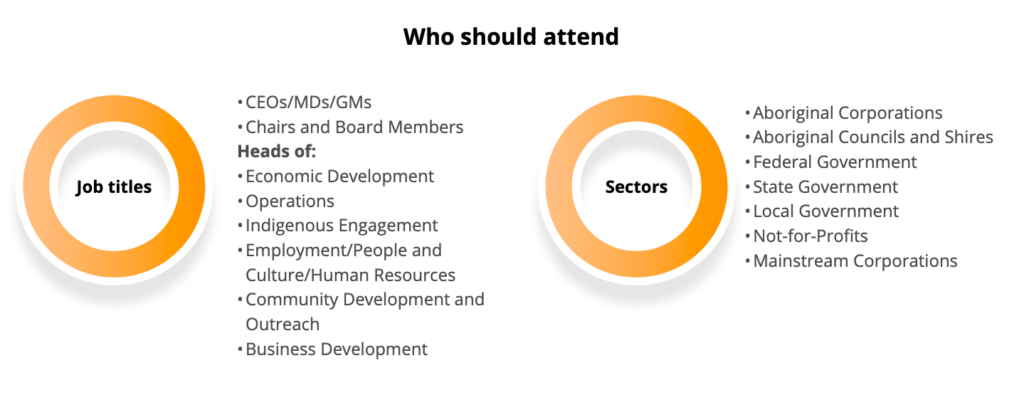
PROUDLY SUPPORTED BY

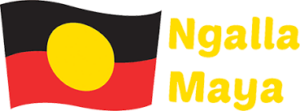


MEDIA PARTNERS
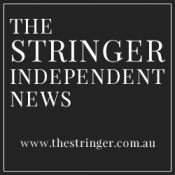


VENUE
VENUE
Hilton Cairns
CONTACT AKOLADE
- +61 02 9247 6000
- +61 02 9247 6333
- info@akolade.co
